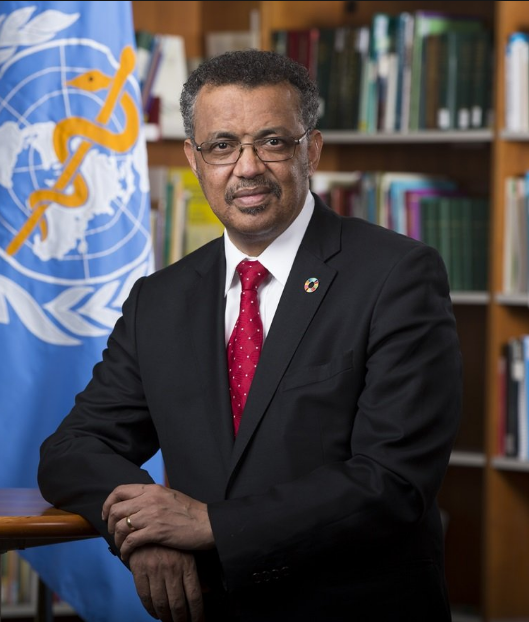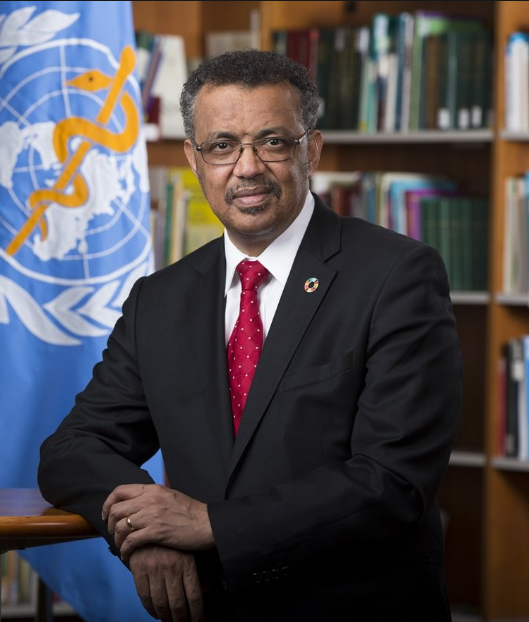By Omboki Monayo
Nairobi, Kenya: The World Health Organization (WHO) is urging member states to adopt a One Health approach to address unprecedented challenges, improve human and animal health, and safeguard the environment.
According to WHO Director-General Dr. Tedros Adhanom Ghebreyesus, embracing a One Health approach, which acknowledges the interconnectedness of human, animal, and environmental health, holds great promise for tackling unprecedented challenges.
The WHO head made the remarks in a speech delivered at the second Quadripartite Executive Annual meeting held in Nairobi on February 29, 2024
“The Plan of Action implementation guide is an important and practical tool for supporting countries to translate theory into action. we need a relentless focus on implementing the One Health Joint Plan of Action in countries,” said Dr Ghebreyesus.
Thursday’s meeting brought together the UN Food and Agriculture Organization, the UN Environment Programme, the World Health Organization, and the World Organization for Animal Health. Together, they constitute the Quadripartite collaboration, which is committed to promoting the global adoption of the One Health approach.
Beyond discussion on the agenda items, the event served as the platform to issue a rallying call to embed One Health principles into national and international policies, underscoring the imperative for political leadership in driving this transformation. The One Health Joint Plan of Action, introduced in 2022, along with its Implementation Guide, offered a clear pathway for translating One Health ideology into tangible initiatives.
The inaugural joint plan on One Health aims to establish a framework for integrating systems and building capacity to collectively enhance prevention, prediction, detection, and response to health threats. Its overarching goal is to enhance the health outcomes of humans, animals, plants, and the environment, while also promoting sustainable development.

Developed through a collaborative process, the One Health Joint Plan of Action (OH JPA) outlines a series of activities designed to bolster cooperation, communication, capacity development, and coordination across all sectors involved in addressing health issues at the human-animal-plant-environment interface.
This plan spans a five-year period (2022-2026) and focuses on enhancing and broadening capabilities in six key areas: One Health capacities within health systems, management of emerging and re-emerging zoonotic epidemics, control of endemic zoonotic, neglected tropical, and vector-borne diseases, mitigation of food safety risks, combating antimicrobial resistance, and addressing environmental concerns.
The technical document draws upon evidence, best practices, and existing guidance to outline a series of actions aimed at advancing One Health at the global, regional, and national levels. These actions include the development of forthcoming implementation guidance for countries, international partners, and non-state actors such as civil society organizations and professional associations.
In his speech, Dr Ghebreyesus identified international collaboration as a fundamental step forward in achieving universal One Health adoption, saying there was consensus on the need to advance and implement the plan.
“This is a cornerstone of our shared efforts and must be the measure of our success. We have already converged on this,” he said.
He told attendees that the COVID-19 pandemic had provided vital lessons on the need for countries to improve the quality of their response to health emergencies.
“We must also leverage the lessons learned from COVID-19 to support countries to better prepare for, prevent, detect and respond to outbreaks. That means a transformative change is needed in the global approach to our relationship with the environment and how we tackle disease emergence, spillovers and spread,” Dr Ghebreyesus said.
He additionally called for greater political goodwill and discussion between members to ensure that the One Health agenda remains a priority.
“We need sustained political will to ensure One Health principles are embedded in national and international policies,” he said. “We must maintain political engagement and advocacy for One Health, in a world where epidemics and pandemics are a constant threat,” added the WHO head.
On her part, Dr Amina Benyahia, who is the Head of the WHO One Health Initiative, told the meeting that the end goal of the plan is to bring about positive and significant changes among member states.
“The ultimate goal and value of our One Health collaboration lie in effecting positive changes at the country level,” said Dr Nenyahia.
“By empowering countries, strengthening health systems, and fostering cross-sectoral collaboration, we have the opportunity to drive transformative change from the ground up to achieve improved health and well-being globally,” added the scientist.
Dr Ghebreyesus reminded member states that the joint plan required funding, adding that they all need to participate in resource mobilization to make it a success.
“Implementing the Plan of Action in countries will require investment, so we must strengthen our collective efforts to mobilize the necessary resources,” he said.
He emphasized the need for research-based evidence to drive the process, reminding participants that there was sufficient scientific capacity to accomplish it.
“We must ensure science and evidence guide all One Health interventions. The work of the One Health High-Level Expert Panel and other Quadripartite research initiatives will help in that regard,” concluded the WHO boss.














